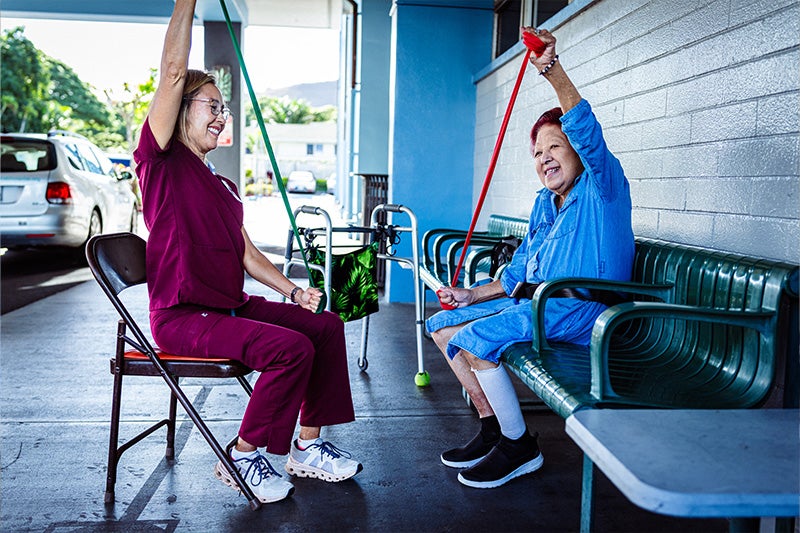How Occupational Therapy Supports Healing: Conditions OT Can Help With
April 7, 2025Tags: Occupational Therapy
Occupational Therapy (OT) is a powerful tool for helping people regain independence and improve their quality of life. But what specific conditions can OT help with? From physical challenges to cognitive and emotional well-being, OT plays a crucial role in supporting individuals of all ages.

Neurological Conditions
Our nervous system controls how we move, think, and interact with the world. When conditions or injuries affect the brain or nerves, everyday activities can become difficult. OT helps individuals regain function and adapt to changes caused by:
- Stroke – Restoring fine motor skills, improving coordination, and adapting daily routines.
- Traumatic Brain Injuries (TBI) – Enhancing cognitive skills, memory, and problem-solving abilities.
- Parkinson’s Disease – Assisting with mobility, hand function, and energy conservation techniques.
- Multiple Sclerosis (MS) – Teaching strategies to manage fatigue, weakness, and coordination issues.
Orthopedic and Musculoskeletal Conditions
Pain, stiffness, or weakness in the muscles and joints can limit a person’s ability to perform everyday tasks. OT can help individuals with:
- Arthritis – Recommending adaptive tools and exercises to maintain independence.
- Post-Surgical Recovery – Assisting in regaining movement and daily function after joint replacements or fractures.
- Chronic Pain Conditions – Teaching ergonomic techniques and pain management strategies to improve comfort.


Developmental and Pediatric Conditions
Children who face developmental challenges may struggle with fine motor skills, coordination, and sensory processing. OT provides specialized interventions for:
- Autism Spectrum Disorder (ASD) – Supporting social skills, sensory integration, and self-care tasks.
- Attention-Deficit/Hyperactivity Disorder (ADHD) – Helping with focus, organization, and executive functioning skills.
- Sensory Processing Disorders – Assisting children in regulating responses to sensory stimuli for better participation in school and home activities.
Cognitive and Mental Health Conditions
OT is not just for physical conditions—it also supports mental health by providing strategies to improve emotional well-being and daily function. OT can be beneficial for:
- Anxiety and Depression – Creating structured routines, coping strategies, and engagement in meaningful activities.
- Post-Traumatic Stress Disorder (PTSD) – Assisting with stress management, relaxation techniques, and reintegration into daily life.
- Dementia, including Alzheimer’s Disease – Offering memory aids, home modifications, and caregiver support to enhance safety and independence.


Workplace and Injury Rehabilitation
Injuries at work can make returning to normal duties challenging. OT helps individuals recover and adapt to new ways of working by:
- Rehabilitating hand and wrist injuries – Improving dexterity and strength for tasks like typing or lifting.
- Preventing workplace strain injuries – Teaching proper ergonomics and body mechanics.
- Helping individuals return to work after injury – Developing modified work strategies and accommodations.
Chronic Illness and Disability Management
For those living with long-term conditions, OT helps improve quality of life and maintain independence. It’s especially useful for:
- Diabetes Management – Teaching adaptive techniques for self-care and healthy lifestyle choices.
- Vision Impairments – Recommending assistive technology and home modifications for easier navigation.
- Spinal Cord Injuries – Assisting with mobility strategies and self-care independence.

Empowering Individuals Through Occupational Therapy
No matter the condition, the goal of occupational therapy remains the same: to empower individuals to engage in meaningful activities and live life to the fullest. Whether recovering from an injury, managing a chronic condition, or adapting to new challenges, OT provides customized solutions to help individuals thrive.
If you or a loved one could benefit from occupational therapy, our compassionate team is here to help, with convenient locations in Athens, Lavonia and Greensboro. Reach out today to learn more about how OT can support your journey to independence and well-being!



